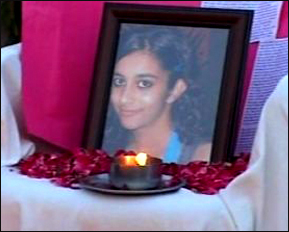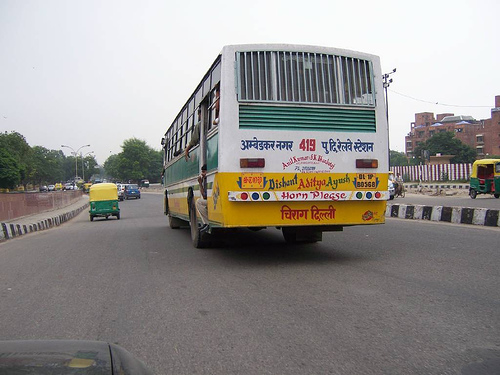 |
| Justice Panchal |
In a recent decision, the Supreme Court in Kalyan Kumar Gogoi vs Ashutosh Agnihotri & Anr., has examined and explained the law relating to the appreciation of 'hearsay' evidence. Justice J.M. Panchal, speaking for the bench has observed as under;
18.The word `evidence' is used in common parlance in three different senses : (a) as equivalent to relevant (b) as equivalent to proof and (c) as equivalent to the material, on the basis of which courts come to a conclusion about the existence or non-existence of disputed facts. Though, in the definition of the word "evidence" given in Section 3 of the Evidence Act one finds only oral and documentary evidence, this word is also used in phrases such as : best evidence, circumstantial evidence, corroborative evidence, derivative evidence, direct evidence, documentary evidence, hearsay evidence, indirect evidence, oral evidence, original evidence, presumptive evidence, primary evidence, real evidence, secondary evidence, substantive evidence, testimonial evidence, etc. The idea of best evidence is implicit in the Evidence Act. Evidence under the Act, consists of statements made by a witness or contained in a document. If it is a case of oral evidence, the Act requires that only that person who has actually perceived something by that sense, by which it is capable of perception, should make the statement about it and no one else. If it is documentary evidence, the Evidence Act requires that ordinarily the original should be produced, because a copy may contain omissions or mistakes of a deliberate or accidental nature. These principles are expressed in Sections 60 and 64 of the Evidence Act.
19.The term `hearsay' is used with reference to what is done or written as well as to what is spoken and in its legal sense, it denotes that kind of evidence which does not derive its value solely from the credit given to the witness himself, but which rests also, in part, on the veracity and competence of some other person. The word `hearsay' is used in various senses. Sometimes it means whatever a person is heard to say. Sometimes it means whatever a person declares on information given by someone else and sometimes it is treated as nearly synonymous with irrelevant. The sayings and doings of third person are, as a rule, irrelevant, so that no proof of them can be admitted. Every act done or spoken which is relevant on any ground must be proved by someone who saw it with his own eyes and heard it with his own ears. 20.The argument that the rule of appreciation of hearsay evidence would not apply to determination of the question whether change of venue of polling station has materially affected the result of the election of the returned candidate, cannot be accepted for the simple reason that, this question has to be determined in a properly constituted election petition to be tried by a High Court in view of the provisions contained in Part VI of the Representation of the People Act, 1951 and Section 87(2) of the Act of 1951, which specifically provides that the provisions of the Indian Evidence Act, 1872, shall subject to the provisions of the Act, be deemed to apply in all respects to the trial of an election petition. The learned counsel for the appellant could not point out any provision of the Act of 1951, which excludes the application of rule of appreciation of hearsay evidence to the determination of question posed for consideration of this Court in the instant appeal.
21.Here comes the rule of appreciation of hearsay evidence. Hearsay evidence is excluded on the ground that it is always desirable, in the interest of justice, to get the person, whose statement is relied upon, into court for his examination in the regular way, in order that many possible sources of inaccuracy and untrustworthiness can be brought to light and exposed, if they exist, by the test of cross- examination. The phrase "hearsay evidence" is not used in the Evidence Act because it is inaccurate and vague. It is a fundamental rule of evidence under the Indian Law that hearsay evidence is inadmissible. A statement, oral or written, made otherwise than a witness in giving evidence and a statement contained or recorded in any book, document or record whatever, proof of which is not admitted on other grounds, are deemed to be irrelevant for the purpose of proving the truth of the matter stated. An assertion other than one made by a person while giving oral evidence in the proceedings is inadmissible as evidence of any fact asserted. That this species of evidence cannot be tested by cross-examination and that, in many cases, it supposes some better testimony which ought to be offered in a particular case, are not the sole grounds for its exclusion. Its tendency to protract legal investigations to an embarrassing and dangerous length, its intrinsic weakness, its incompetency to satisfy the mind of a Judge about the existence of a fact, and the fraud which may be practiced with impunity, under its cover, combine to support the rule that hearsay evidence is inadmissible.
22.The reasons why hearsay evidence is not received as relevant evidence are: (a) the person giving such evidence does not feel any responsibility. The law requires all evidence to be given under personal responsibility, i.e., every witness must give his testimony, under such circumstance, as expose him to all the penalties of falsehood. If the person giving hearsay evidence is cornered, he has a line of escape by saying "I do not know, but so and so told me", (b) truth is diluted and diminished with each repetition and (c) if permitted, gives ample scope for playing fraud by saying "someone told me that...........". It would be attaching importance to false rumour flying from one foul lip to another. Thus statement of witnesses based on information received from others is inadmissible.




